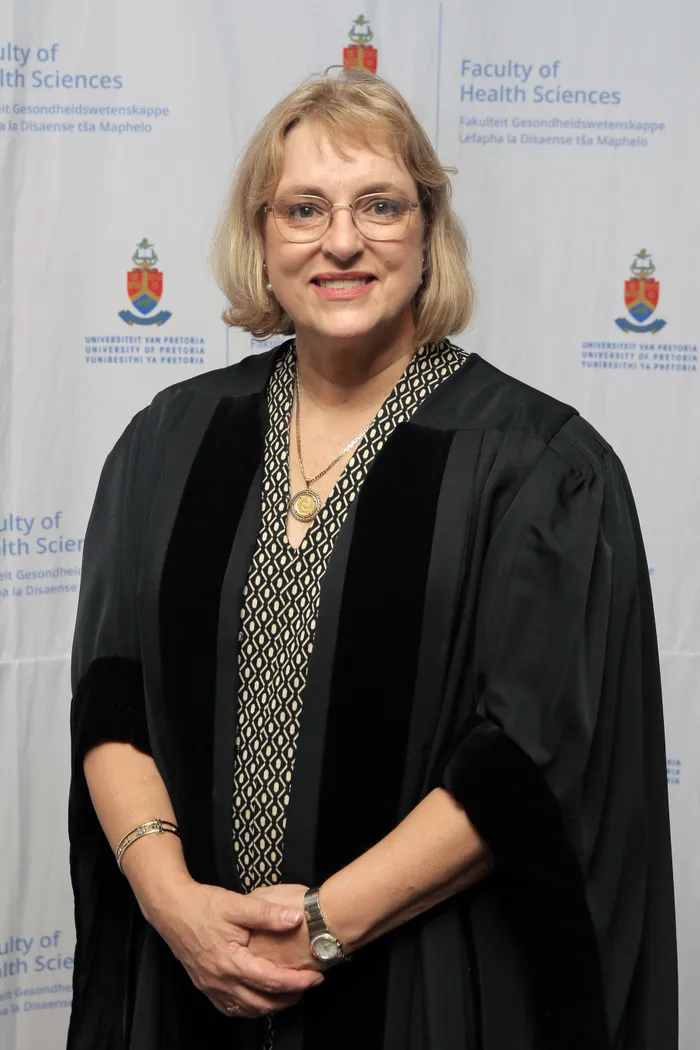There is an urgent need for cervical cancer awareness, UP Professor says

University of Pretoria's Professor Greta Dreyer said there is an urgent need for cervical cancer awareness
Image: Supplied
Cervical cancer among South African women is almost entirely preventable and breast cancer outcomes can drastically improve with earlier detection. Yet, too many women – many of them breadwinners and single parents – are dying unnecessarily.
During an inaugural address, titled 'Preventing Premature Cancer Death', Greta Dreyer, a Professor at the University of Pretoria’s (UP) department of Obstetrics and Gynaecology, outlined the human cost of cancer mortality in South African women, especially those under the age of 45.
She highlighted that despite decades of scientific breakthroughs and the availability of vaccines and screening technologies in relation to cervical cancer in particular, many women are still being diagnosed too late.
This, Dreyer said is not just a public health issue – it’s a societal emergency. She pointed out that with an estimated six million female-headed households in the country, more than 12 million children depend directly on a mother’s income. Yet cervical cancer deaths are largely avoidable.
While breast cancer has more public awareness and attention, cervical cancer is nearly as common and more deadly. According to Dreyer, this is largely due to stigma, because this is an intimate disease, as well as late detection and systemic barriers to screening.
“Women do not speak about their diagnosis and generally do not survive long, leading to reduced consciousness of the problem.”
Dreyer’s work has contributed to understanding the causes of cervical cancer and identifying more accurate ways to screen for it in local contexts. Internationally, Human Papilloma Virus (HPV) types 16 and 18 lead to most (about 70%) cervical cancer cases.
But when Dreyer and her team studied South African women, they found this percentage to be smaller and that HPV35 was another very common type, particularly in women living with HIV. This insight shifted the conversation around HPV testing and vaccine effectiveness for South African populations.
Collaborating with international researchers and local universities, Dreyer’s team helped develop a screening test tailored to the South African context that can prevent nearly 90% of cervical cancer cases if widely implemented.
Dreyer also started and led the Vaccine and Cervical Cancer Screen (VACCS) research consortium, which produced a series of “firsts” in the country. This was the first time that maternal screening and child vaccination were linked, and the first time that two HPV vaccine doses were administered.
Yet, despite national HPV vaccination being offered to primary school girls, the programme remains disconnected from maternal screening and broader public education efforts. This, Dreyer said, undermines the potential impact of the vaccine. She stressed that while the science behind cervical cancer prevention is well-established, implementation in South Africa remains patchy.
Cytology-based screening methods, such as the traditional pap smear, are challenging to sustain in under-resourced settings. Their effectiveness relies heavily on infrastructure, follow-up systems and population registries that are often lacking in the country. “Cytology-based screening is highly dependent on health infrastructure, repeated testing, call and recall, and thus cannot be expected to work in South Africa,” she said.
To address this, Dreyer and her research collaborators turned to molecular screening and self-sampling methods, which are more feasible in low-resource environments and easier for women to access.
In addition to her work on HPV-related cancers, Dreyer has played a leading role in advancing research on inherited cancer risk, particularly among South African women with breast and ovarian cancer. The research findings enabled targeted risk-reduction strategies such as genetic testing, preventive surgery and hormone therapy.
zelda.venter@inl.co.za